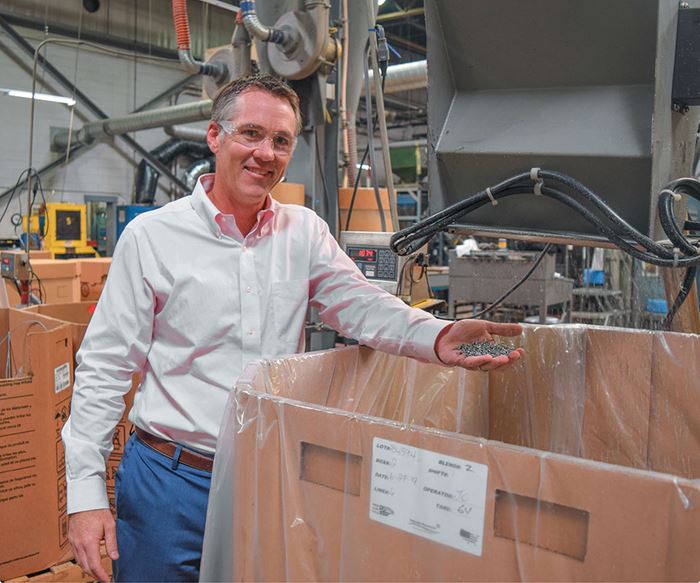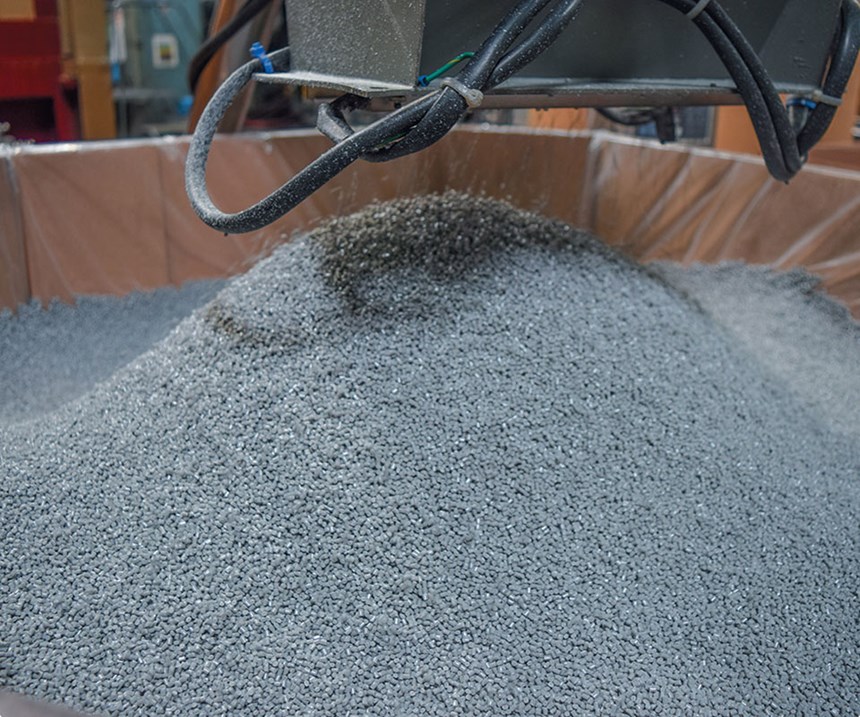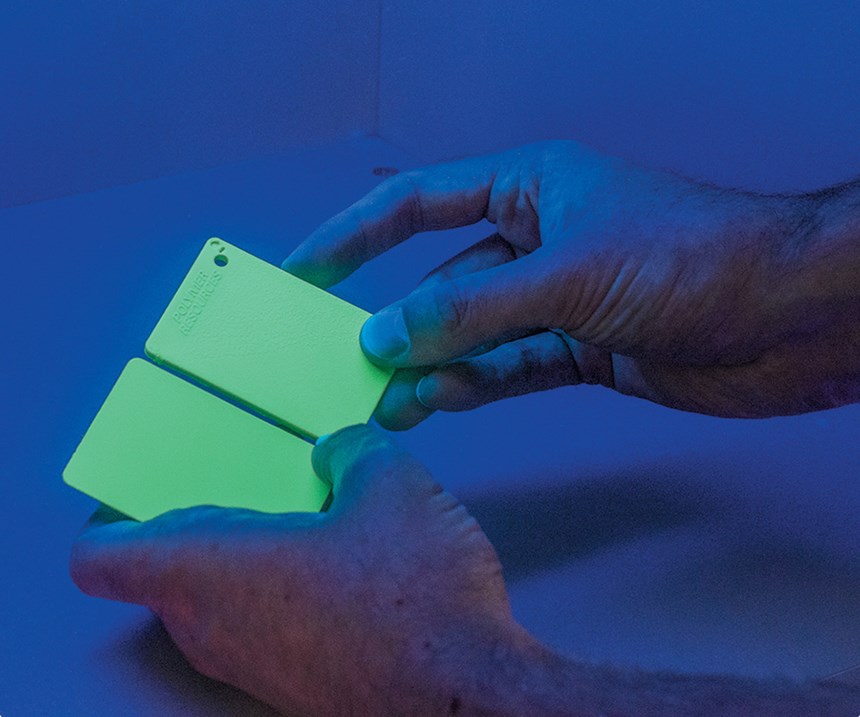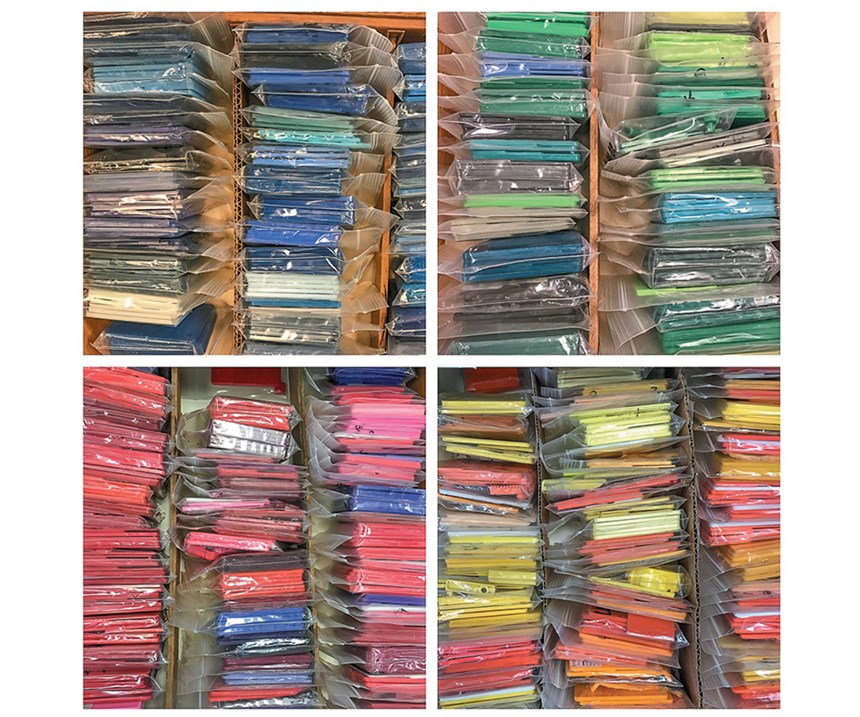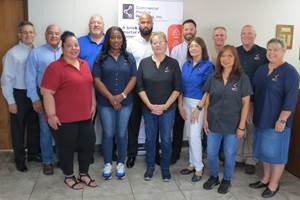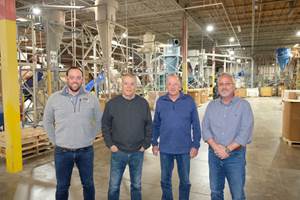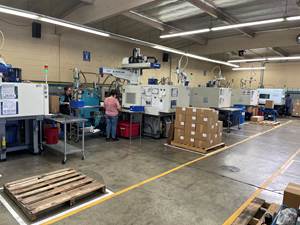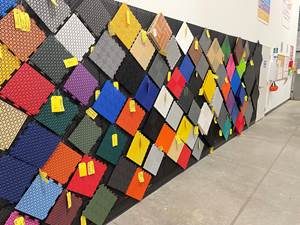Polymer Resources: Compounding's 'Small Big Guy'
This compounder combines a service-first, small-company mindset with the technical might of larger companies to carve a niche in engineering plastics.
Les Klein was either gifted with prescience or had a highly accurate crystal ball. About 43 years ago, he identified a nascent trend among polymer producers that combined a lack of flexibility with hesitancy to fill highly customized orders in small lots and a somewhat lackluster approach toward customer service. Klein worked for a major resin company at the time, and what he identified as an embryonic trend in the early 1970s is considered by many to be the norm today.
So Klein started a compounding operation named Polymer Resources to tap into these unmet needs. Today, with plants in Farmington, Conn., and Rochester, N.Y., Polymer Resources is an enterprise that produces its own line of engineering thermoplastic compounds. It has 40 million lb of annual capacity, and runs a gamut of resins, though about half its products are PC based. It also runs a lot of ABS and PPO alloys. Generally, it runs three shifts, five days a week.
Polymer Resources serves customers in a wide range of markets, with a strong emphasis on electrical/ electronics (it offers more than 100 UL grades). Its specialty electrical/ electronic compounds are used in buildings for wiring devices, circuit protection, cable ties, connectors/ terminal blocks, and power equipment; in electronics for flashlights, residential and commercial controls, signaling protection and communication (such as automatic detectors and traffic cameras); and in lighting systems for controls and sensors, emergency lighting, and exit signs.
The firm also participates in a variety of other markets with injection molding, extrusion, and blow molding grades for medical/healthcare, transportation, industrial, appliances, housewares, sporting goods, toys, and more.
Its range of services extend beyond formulating compounds to include product design, tooling recommendations, troubleshooting and process development, agency approval support (both UL and CSA), and thermoset-to-thermoplastic conversion, a big issue with some electrical components.
“Most resin companies these days have a minimum order quantity of 1500 lb,” notes Scott Anderson, who has been COO of Polymer Resources for about a year. “That’s not a criticism, they are just set up to do business that way.”
Anderson, like CEO Klein, formerly worked for GE Plastics/Sabic.
Our mantra is ‘made to order.’ I really don’t think of us as a supplier of plastic pellets. I think of ourselves as a service company that provides a plastic pellet.
Anderson describes Polymer Resources as a “small big guy,” meaning that it provides the speed, flexibility, and service that usually are the hallmarks of a small business, and combines that with the technical firepower of much larger firms. “Every product we make is for a specific customer; we don’t shoehorn customers into this grade or that grade. Our orders range from 250 lb to a full truckload.” The compounder has stocking programs for customers, and will inventory compounds in either of its two production plants or at one of 10 distribution centers across the country. Polymer Resources has four-week lead times for custom-colored compounds, two weeks for black and gray, and offers an Express Service program that can provide turnarounds in as few as three days.
Polymer Resources employs about 100 people total. Typical of many small-to-medium-sized, privately-held firms, dozens of these employees have been with the firm 10, 15, and even 20 years or more.
Company officials believe Polymer Resources was the first independent compounder to buy an ERP system from IQMS, Paso Robles, Calif.
But it had already built its own production-scheduling and monitoring process and integrated it into the ERP. That’s “big guy” behavior. And its sales team has direct access to production data, meaning it can give customers real-time information on order status, altogether avoiding what the company refers to as “phone trees.” States Anderson, “Suppliers and customers can reach our sales people, technicians, customer service, and executives by dialing them directly.”
At its 70,000 ft2 plant in Farmington, Polymer Resources runs seven extrusion lines. All of its lines utilize strand pelletizing. Material generally is fed to extruders as a preblend. Polymer Resources runs a half-dozen high-intensity mixers to preblend base resin, color, and other additives. The firm also runs three single-screw extruders in Rochester, mostly for blacks and grays.
Polymer Resources recently completed a multi-million-dollar project at Farmington to install an air-purification system on the production floor to capture dust. Says Anderson, “We care about our employees and the environment. Our air inside the plant is cleaner than the air outside.”
Manufacturing is supported by labs equipped to inspect incoming material for melt index, impact resistance, and other properties. A 1.25-in. lab compounding line is used for product development. The Quality and Technology Labs are equipped with four injection presses; two mold chips for color matching, the others make specimen bars for tensile, notched Izod, and other tests.
Color matching is a particular area of expertise at Polymer Resources. Notes Anderson, “Our color-match technicians have extensive expertise in formulating,
testing, and delivering highly precise color compounds. I’d say about half of our business is in custom color, and we’ve never had a product returned because of a bad color match.” Polymer Resources’ color lab has drawers and drawers full of successfully formulated color chips in case they are needed for future reference. The lab is equipped with a spectrophotometer with integrated SPC, as well as a melt-flow analyzer.
“Our ideal customer is someone who buys between 100,000 and 500,000 lb of material a year, but whether they are buying a truckload of material or 250 lb, they get the same level of customer support,” says Anderson.
He adds, “Our mantra is ‘made to order.’ I really don’t think of us as a supplier of plastic pellets. I think of ourselves as a service company that provides a plastic pellet.”
Related Content
Inside the Florida Recycler Taking on NPE’s 100% Scrap Reuse Goal
Hundreds of tons of demonstration products will be created this week. Commercial Plastics Recycling is striving to recycle ALL of it.
Read MoreEvolving Opportunities for Ambitious Plastics Recycler
St. Joseph Plastics grew from a simple grinding operation and now pursues growing markets in recycled PP, food-grade recycled materials, and customized post-industrial and post-consumer compounds.
Read MoreBack in the Family Business
In its 45th year, Precision Molded Plastics has carved out a technology and market niche, growing not just when opportunities arise but when they make sense, after its leader changed careers to keep the family business from changing hands.
Read MoreInjection Molder Bases Company Culture on Employee Empowerment
After more than two decades in the industry, Rodney Davenport was given the opportunity to create an injection molding operation in his own vision, and — in keeping with the product he was making — to do so from the ground up.
Read MoreRead Next
Making the Circular Economy a Reality
Driven by brand owner demands and new worldwide legislation, the entire supply chain is working toward the shift to circularity, with some evidence the circular economy has already begun.
Read MoreLead the Conversation, Change the Conversation
Coverage of single-use plastics can be both misleading and demoralizing. Here are 10 tips for changing the perception of the plastics industry at your company and in your community.
Read More

